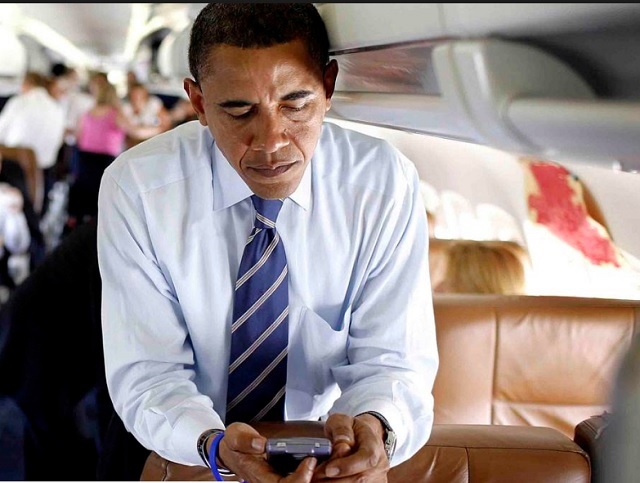
Washington, United States | AFP |
President Barack Obama has ordered a review of all cyberattacks that took place during the 2016 election cycle, the White House said Friday, amid allegations of Russian interference.
“The president has directed the intelligence community to conduct a full review of what happened during the 2016 election process,” said Lisa Monaco, Obama’s homeland security advisor.
Monaco said at a breakfast hosted by The Christian Science Monitor that it was vital to “understand what this means, what has happened and to impart some lessons learned.”
She added that Obama expects a report before he leaves office on January 20 and Republican Donald Trump assumes the presidency.
Democrat emails hacked
The move comes after Democrats in Congress pressed the White House to reveal details, to Congress or to the public, of Russian hacking and disinformation in the election.
Confidential emails from the Democratic National Committee and John Podesta, a top advisor to Democratic nominee Hillary Clinton, were steadily leaked out via WikiLeaks in the months before the election, damaging Clinton’s ultimately losing White House effort.
On October 7, one month before the election, the Department of Homeland Security and the Director of National Intelligence announced that “the Russian Government directed the recent compromises of emails from US persons and institutions, including from US political organizations.”
“These thefts and disclosures are intended to interfere with the US election process,” they said.
But in an interview published Wednesday with Time magazine for its “Person of the Year” award, Trump dismissed those findings. Asked whether the intelligence was politicized, Trump answered: “I think so.”
“I don’t believe they interfered. That became a laughing point, not a talking point, a laughing point. Any time I do something, they say ‘oh, Russia interfered.'”
“It could be Russia. And it could be China. And it could be some guy in his home in New Jersey.”
Worries that Trump will sweep the issue under a rug after his January 20 inauguration led seven Democrats on the Senate Intelligence Committee to call on November 29 for the White House to declassify what it knows about Russian interference in the election.
The seven have already been briefed in the classified details, suggesting they believed that there is more information that the public should know.
Then on Tuesday this week, leading House Democrats called on Obama to give members of the entire Congress a classified briefing on Russian hacking of US political organizations, fake news stories allegedly produced by Russian entities to mislead US voters, and other possible interference in the electoral process.
“By eroding Americans’ and foreigners’ trust in US institutions, Russia both weakens our country and sows global instability and uncertainty,” they said.
Republicans in Congress have also promised hearings into Russian activities once the new administration comes in.
Germans also warn of Russian interference
It was not clear however whether the Obama White House was likely to make any more information public.
Monaco said the aim of the review “is to capture lessons learned from that and to report to a range of stakeholders to include the Congress,” but she also noted the need not to expose US intelligence sources and methods in the process.
“We have seen in 2008 and in this last election system malicious cyber activity. We maybe [have] crossed into a new threshold and it is incumbent upon us to take stock of that.”
Russian hacking and election interference have also become a big issue in Germany.
On Thursday Germany’s domestic intelligence agency BfV issued a stark warning over a rising Moscow-directed campaign of hacking and misinformation directed at “destabilizing” the country and influencing political discourse.
Last week WikiLeaks published stolen documents on intelligence activities that embarrassed Chancellor Angela Merkel just as she began campaigning for the elections slated for late 2017.
“In the political realm, we detect an increasingly aggressive cyber espionage, warned BfV chief Hans-Georg Maassen.
“The indications of attempts to influence the German parliamentary elections next year are intensifying.”
 The Independent Uganda: You get the Truth we Pay the Price
The Independent Uganda: You get the Truth we Pay the Price





